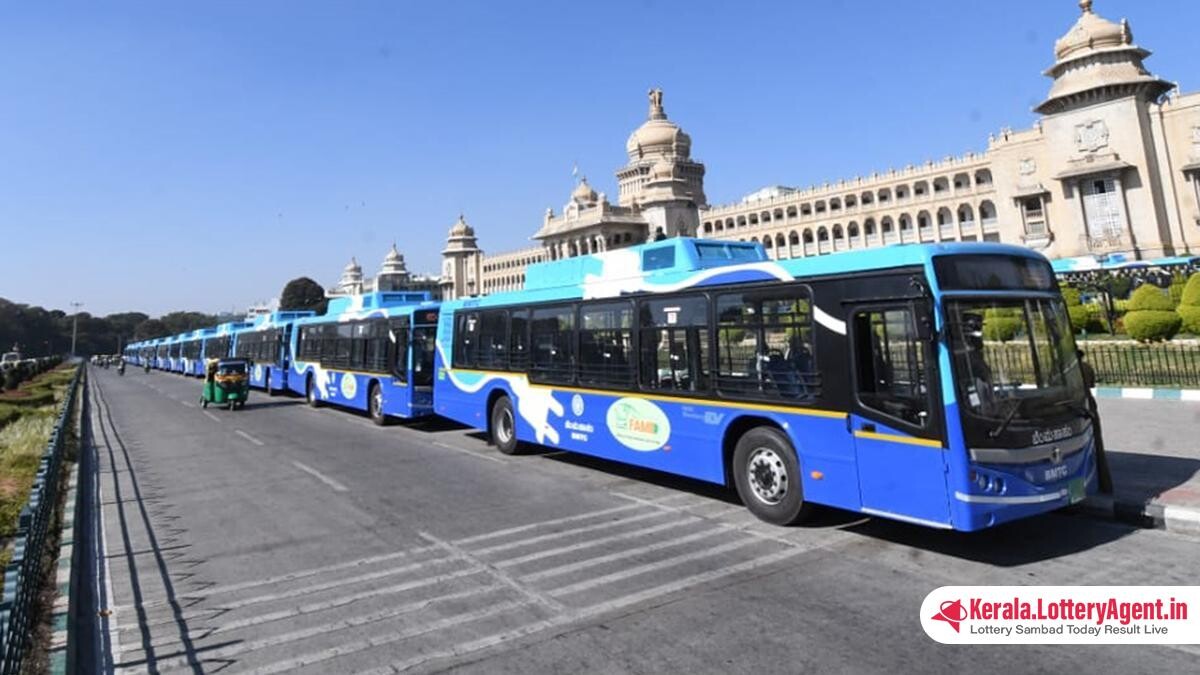
The city of Bengaluru is on the cusp of a transportation evolution as the Bengaluru Metropolitan Transport Corporation (BMTC) gears up to enhance its public transport fleet with the addition of air-conditioned electric buses, fostering a greener, more sustainable future for urban mobility in the region.
In a pivotal partnership, OHM Global Mobility, a subsidiary of the heavy-vehicle manufacturing stalwart Ashok Leyland, has been commissioned to deliver 320 state-of-the-art air-conditioned electric buses to BMTC. The induction of these vehicles marks a significant leap in the corporation’s ongoing efforts to modernize its services and reduce the carbon footprint of the city’s bustling transport system.
The plan also entails the replacement of the aging Volvo buses, which are currently servicing the Vajra and Vayu Vajra airport routes, with these new environmentally friendly electric buses. The transition not only promises an enhanced travel experience for commuters due to the vehicles’ air-conditioned interiors but also underscores BMTC’s commitment to adopting clean energy alternatives.
Recently, OHM Global Mobility was officially awarded a contract to operate these air-conditioned electric buses under a Gross Cost Contract (GCC) model. Under the terms of this model, BMTC will remunerate OHM ₹65.80 per kilometre for their service. The first prototype bus is anticipated to be welcomed into Bengaluru within three months, initiating the countdown to a complete handover of the fleet by March 2025.
At present, BMTC’s operations include a variety of non-air-conditioned electric buses. The new fleet, however, will feature 320 low-floor AC electric buses, each measuring 13 meters in length. These buses are not only designed to offer a more comfortable journey with air-conditioning but are also tailored to be disable-friendly, equipped with retractable ramps to aid passengers who require mobility support.
The agreement specifies that every bus from this novel fleet must cover a daily distance of 250 kilometers throughout the year, clocking up to a yearly total of 87,500 kilometers. For the deployment and management of these high-tech conveyances, BMTC has chosen four of its depots as dedicated hubs—Depot 7 located in Subhash Nagar, Depot 13 in Katriguppe, Depot 18 in Whitefield, and Depot 25 situated in HSR Layout.
Currently, BMTC operates a sizeable fleet of 593 Volvo AC buses, which run 474 daily schedules across the Vajra and Vayu Vajra routes. Within the domain of electric buses, the BMTC’s inventory includes 300 Ashok Leyland Switch Mobility e-buses, 213 e-buses from Tata Motors, and 90 JBM-NTPC e-buses. However, unlike the forthcoming additions, these are all non-air-conditioned models.
Out of the total 6,147 buses under BMTC’s management, a vast majority of 5,643 run on diesel, with the remaining 503 classified as electric. The electric category is diverse, comprising 90 Midi 9-meter buses, 300 12-meter buses, and 113 low-floor 12-meter buses, all of which are presently without air-conditioning facilities.
This strategic development in Bengaluru’s public transport infrastructure is not only expected to enhance the city’s reputation as a hub for technological advancements and sustainable urban planning but also aims to significantly improve the daily commute for its millions of residents. With a keen focus on accessibility, comfort, and eco-friendly transport solutions, BMTC is poised to elevate the standards of public conveyance while contributing positively to the global cause of reducing vehicular emissions.












